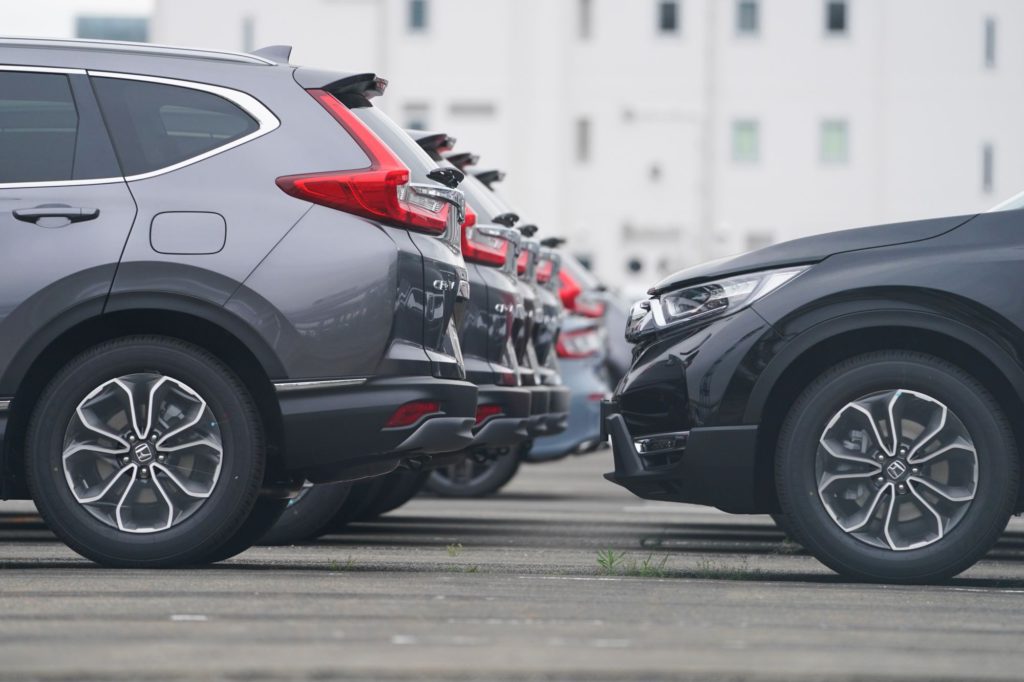(Bloomberg) — Honda Motor Co. issued an annual operating profit outlook that fell short of analysts’ projections, reflecting the impact of higher raw material costs and production disruptions caused by war, China’s Covid lockdowns and a persistent global shortage of semiconductors for automobiles.
Operating profit for the fiscal year through March 2023 will be 810 billion yen ($6.3 billion), the Japanese carmaker said in a statement Friday, compared with analysts’ average estimate for 943 billion yen.
The outlook comes after Honda topped its own projections for the just-ended fiscal year with profit of 871 billion yen. Its guidance for last year was 800 billion yen, while analysts were estimating 820 billion on average.
While weaker yen has long been considered a boon for Japan’s blue-chip exporters, it’s now starting to damage Japanese automakers as material costs inflate for importers.
Oil prices have soared amid Russia’s invasion of Ukraine. Covid lockdowns in China are also weighing on, with factories being forced to halt, causing further supply chain disruptions.
Honda expects to see continued impact from the lockdown in Shanghai through the end of May, Yasuhide Mizuno, Honda’s senior managing executive officer, said at a briefing Friday.
The damage done to supply chains outweigh the benefit of plunging yen, said Takeshi Miyao, an analyst at Carnorama.
Even as automakers try to produce cars, “demand and supply are losing balance” due to Covid and the Russia-Ukraine war, he added.
Still, Honda’s annual output was 4.1 million units for the fiscal year that ended March 2022, marking a third-straight annual decline.
Honda forecast net sales of 16.3 trillion yen for the current fiscal year.
That compares with 14.6 trillion yen in the prior period and analysts’ average prediction for 16.2 trillion yen.
Honda shares rose 2.2% ahead of the earnings announcement.
Despite the headwinds, Honda is pushing ahead with an ambitious shift to electric cars, with Chief Executive Officer Toshihiro Mibe in April unveiling a plan to spend $40 billion on its push into electric vehicles over the next decade.
Still, electrification comes with “high hurdles” that Honda can’t overcome on its own, Mibe said in an interview last month.
Honda is teaming up with Sony Group Corp. to develop EVs and will expand an existing tie-up with General Motors Co.
Demand for auto electronic parts will be unstable over the next three to six months, Bloomberg Intelligence analysts Mawashiro Wakasugi and Tatsuo Yoshida wrote in a note earlier this week.
April car sales in Japan shows that recovery is sluggish, but potential demand is strong, they wrote.
Earlier this week, Toyota Motor Corp. forecast a 20% decline in operating profit for the current fiscal year, citing an “unprecedented” rise in costs for logistics and raw materials.
Nissan Motor Co.’s profit outlook also fell short of analysts’ average projection. Meanwhile, Mitsubishi Motors Corp., Mazda Motor Corp. and Subaru Corp. both posted an outlook that beat analysts’ estimates.
“We can’t just say that weaker yen is good” although it has helped Honda make profits, Kohei Takeuchi, Honda’s executive vice president, said at the briefing.
Rising inflation in the US and the Russian war are hitting the economy, and that’s why the yen is falling, he added. “For a company, it’s hard to deal with big currency volatilities. We’d like to see stable moves in the longer term.”
(Updates with executive comments in the fifth paragraph.)
More stories like this are available on bloomberg.com
©2022 Bloomberg L.P.











